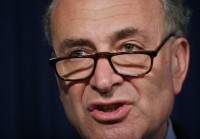We all pay “universal service” assessments on our phone bills. It’s even broken out separately; go look. It’s probably just a matter of time before the Federal Communications Commission proposes to slap universal service assessments on broadband service to help pay for universal service subsidies for broadband service. The national broadband plan, after all, calls for “broadening” the universal service funding base.
If the commission reclassifies broadband as a “Title II” telecommunications service, this will be virtually automatic because the Telecommunications Act of 1996 says telecommunications providers must contribute toward the FCC’s universal service fund. If the commission doesn’t reclassify broadband, it could still require contributions — just like it imposed universal service assessments on VOIP without classifying VOIP as telecommunications.
After the FCC starts using universal service funds to subsidize broadband for poor people and rural households, the logic will be seductively compelling: “Broadband receives subsidies, so it’s only fair that broadband pays into the fund.”
Forget the ensuing howls about “taxing the Internet.” I want to talk about another aspect of this. Would imposing universal service assessments on broadband actually further the FCC’s goals in its national broadband plan?

Photo by nawtydawg.
The FCC wants to make broadband available to all Americans, regardless of where they live. Ideally, the FCC would like us all to subscribe, regardless of our income or where we live. The problem with imposing universal service assessments on broadband is that this would increase the price, leading subscribership to be lower than it would otherwise be.
This effect might be big or it might be little. But before making a decision about imposing universal service assessments on broadband, the FCC ought to know the size of the effect and how it compares to the increase in subscribership that would result from the subsidies.
To figure out how universal service assessments might affect broadband subscribership, we need to know how responsive broadband subscription is to changes in price. Economists call this the “price elasticity of demand.” The most recent study I’ve seen — and the only one cited in the FCC’s technical paper underlying the national broadband plan — estimates the elasticity of broadband demand was about -0.69 in 2008. That means a 1 percent increase in price would lead to a 0.69 percent decrease in subscribership. Other, earlier studies find much higher demand elasticities. But to be conservative, let’s use -0.69.
Current universal service assessments on interstate telecommunications are about 15 percent. About 66.6 million households had broadband in 2008. A 15 percent increase in the price of broadband would reduce subscribership by about 6.9 million households (15% times -0.69 times 66.6 million.)
If the FCC imposed universal service assessments on broadband, it might be able to lower the rate since it would be collecting assessments from a broader base than just telephone service. Suppose the FCC could lower the assessment to 10 percent, more in line with the historical norm. A 10 percent increase in the price of broadband would reduce subscribership by 4.6 million households (10% times -0.69 times 66.6 million).
So we’re going to reduce broadband subscribership by 4.6-6.9 million households in order to provide subsidies to increase broadband subscribership. If the funds currently spent to subsidize phone service in rural areas were spent on broadband, that would be enough money to close the “funding gap” and make broadband available to the 7 million homes the FCC says currently are unserved or under-served.
Not all of them will susbcribe, so we can’t assume these subsidies will increase subscribership by 7 million. About 65 percent of Americans currently have broadband at home. If 65 percent of unserved or underserved households choose to subscribe once broadband becomes available, that would be 4.55 million new subscribers.
In short, it looks like subjecting all broadband to universal service assessments to pay for rural broadband subsidies would either be a wash or reduce subscribership on net. Paying for universal broadband service with assessments on broadband service will give the FCC a lot to do, but it won’t advance the subscribership goals of the national broadband plan.
There are other ways to raise the money without this perverse effect. Historically, local telephone subscription has been very insensitive to price, so one option would be for the FCC to simply impose a universal service charge per phone number instead of the current percentage fee. (Low-income households who have “Lifeline” service or use low-cost prepaid wireless plans could be charged a lower fee without sacrificing much revenue.)
Another option would be for Congress to earmark some revenues from upcoming spectrum auctions to fund universal broadband service, and reduce the universal service assessments on our phone bills accordingly.
Reasonable people can differ on whether, or by how much, the federal government should subsidize broadband where it is not currently available. But if we’re gonna do it, there’s no sense in funding it with a mechanism that reduces broadband subscription elsewhere.






 The Technology Liberation Front is the tech policy blog dedicated to keeping politicians' hands off the 'net and everything else related to technology.
The Technology Liberation Front is the tech policy blog dedicated to keeping politicians' hands off the 'net and everything else related to technology.